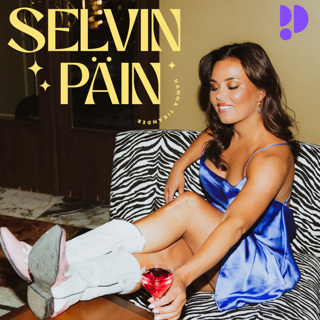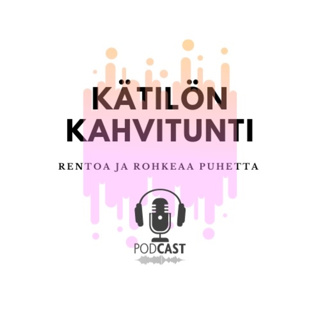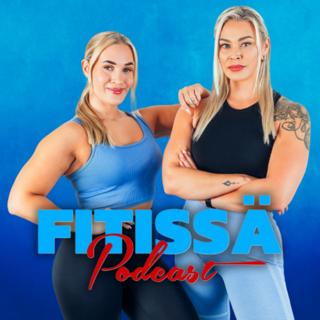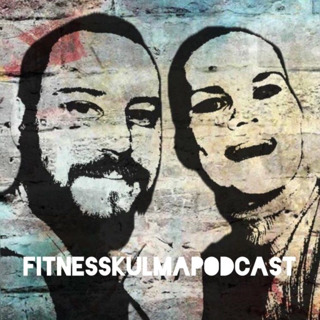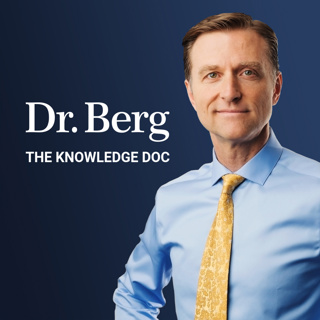
Why Your Vitamins Are Not Working
You may be wondering, do I need to take vitamins? Your body needs around 180 nutrients, and it’s often difficult to satisfy these requirements, especially for vitamin D, magnesium, zinc, and vitamin B3. You can not always identify nutrient deficiencies in the blood. Low stomach acid interferes with vitamin and mineral absorption. If you have low stomach acid, you might also experience problems breaking down food with vitamin B12. Indigestion, heartburn, and SIBO are common symptoms of low stomach acid. Synthetic vitamins aren't the same as natural ones. Do not take synthetic vitamin B12 or B9! Some nutrients need other nutrients to function properly, so taking them in isolated forms rather than a complex can cause problems. Many vitamins contain fillers like maltodextrin that compete for nutrients such as vitamin C. Vitamin B1 is essential for breaking down sugar and carbs, so when you consume maltodextrin, it’s easy to become deficient. Poor diet could be a reason why vitamins aren’t working for you. If you’re diabetic, prediabetic, or have insulin resistance, vitamin absorption will be greatly inhibited. Fix this by going on a low-carb diet. Poor-quality supplements often contain calcium carbonate, which is limestone! Multivitamins with calcium and magnesium are poorly absorbed because these two minerals compete for absorption. Vitamin effectiveness is greatly influenced by dosage. The RDA for vitamin D3 is only 600 IU, but you need around 10,000 IU daily. If you have a chronic illness, you need therapeutic doses of vitamins, not small amounts. Always pay attention to the milligram dosage when choosing a supplement! Taking too little of a supplement significantly reduces vitamin absorption and effectiveness. Bruce Hollis Interview Video: ▶️ • Your Body Is BEGGING For Vitamin D!!
15 Joulu 20247min

STOP Taking Iron Supplements Now
DATA: https://pubmed.ncbi.nlm.nih.gov/22704... https://pubmed.ncbi.nlm.nih.gov/14580... https://pubmed.ncbi.nlm.nih.gov/15247... Too much iron over time can cause iron accumulation in your organs and tissues. Some people have a genetic problem that makes it difficult to eliminate iron if it accumulates too much. Potential side effects of too much iron include the following: 1. Cancer 2. Liver disease 3. Heart disease 4. Low testosterone 5. Low libido 6. Diabetes 7. Chronic fatigue syndrome 8. Infertility 9. Neurodegeneration 10. Inflammatory diseases Iron deficiency is one of the most common mineral deficiencies, but iron can also be dangerous if you’re getting too much. Iron toxicity is one of the most underdiagnosed and overlooked conditions. When you take iron supplements, you don't absorb very much. The excess iron accumulates in the digestive tract, causing constipation, nausea, diarrhea, bloating, and irritation of the colon. The type of iron in iron supplements feeds pathogens. Red meat is a better source of iron. Heme iron from red meat and fish is absorbed much more easily. It goes straight into the bloodstream. Red meat also has other nutrients like B vitamins, zinc, and selenium. High-quality protein also helps to balance iron. Many processed foods contain added iron in the forms of ferrous fumarate, ferrous sulfate, and ferrous gluconate. The most common sources of iron are supplements, fortification, and cooking with cast iron cookware. Liver damage will also cause you to accumulate iron. A lack of copper is a common cause of dysfunctional iron because copper helps control iron in the body. Many enzymes dependent on copper relate directly to the control of iron. The first enzyme involved with copper converts iron into a less accumulative and less toxic form. Copper also allows you to transport iron through the body. Copper is involved in a powerful antioxidant that reduces oxidation caused by iron! Glyphosate, antibiotics, high fructose corn syrup, and wheat products can cause copper deficiency. Iron deficiency anemia may really be iron dysfunctional anemia, which is often related to a copper deficiency. Oysters, shellfish, and organ meats are the best food sources of copper.
14 Joulu 20247min

How to Get Thick and Shiny Hair
Today, I’m going to tell you how to get thick and shiny hair naturally! Biotin is a B vitamin that many people take for thick, shiny hair. It can come from the diet, but it can also come from the gut microbiome. The good bacteria in your gut make biotin. This is why a common side effect of antibiotics is hair problems. When you stop taking biotin, you may notice that the problem comes right back, so it’s vital to address gut health when dealing with biotin deficiency. Liver and egg yolks are the best sources of biotin. Nutritional yeast and salmon also contain biotin. Alcohol, raw eggs, and magnesium deficiency can interfere with biotin absorption. Zinc and copper are essential for biotin absorption and function. Retinol, the active form of vitamin A, is only found in animal foods. Liver and egg yolks are the best sources, but you can also find vitamin A in shellfish and cod liver oil. Vitamin A helps control sebum, so it’s very beneficial for thick, shiny hair! For healthy hair, reduce your omega-6 fat intake and increase your omega-3s. Omega-3 fatty acids are vital for healthy hair. Fish oil and cod liver oil are excellent sources of omega-3s. L. reuteri is a microbe missing in 96% of the population. It increases sebum, which makes hair shiny, and it may also increase hair growth. Copper is used in many different enzymes, including the enzyme that helps prevent iron accumulation in your tissues. Iron is vital for hair growth, but we need the right balance. NPK fertilizer in our foods is a common cause of copper deficiency. If the grass is deficient in copper, the animals that eat the grass will also be deficient. Animals with copper deficiency have very dull hair. If this can happen to sheep and cows, it can definitely happen to us! Overconsumption of iron, often from fortified wheat products, can lock up your copper and contribute to copper deficiency. Other contributors to copper deficiency include high fructose corn syrup and high zinc intake. If you want healthy hair, add the following foods to your diet: •Fermented foods (i.e. kefir, sauerkraut, kimchi) •Liver •Egg yolks •Cod liver oil/cod liver •Organic foods •Trace minerals Soil, Grass and Cancer: https://www.amazon.com/Soil-Grass-Can...
13 Joulu 20247min

Do NOT Make These Mistakes (Especially After 50)
Simple choices could be the reason why you’re not healthy. These unhealthy habits can be especially problematic if you’re over 50. 1. Don’t take health advice from inexperienced people. 2. Don’t be too quick to accept a diagnosis. 3. Avoid solutions that create more problems. 4. Avoid excessive stress. The most important nutrient for people over 50 is vitamin D. Vitamin D influences 10% of your genes. You need at least 10,000 IU of vitamin D or more to produce a therapeutic effect. Doctors worldwide are using vitamin D3 for many health concerns, including autoimmune diseases, eye problems, and fibroids. Magnesium, zinc, and vitamin D work together in a synergistic relationship. Magnesium is vital for heart health and energy. Avoid calcium and iron supplements as you age. It’s very difficult to rid the body of excess iron. You don’t need to avoid salt! Opt for sea salt and make sure you’re getting plenty of potassium. Sodium deficiency can cause increased cortisol levels, which can interfere with sleep. Cholesterol is an essential building block of sex hormones, so you must get enough after menopause. Cholesterol is essential for our brain, bile salts, and other hormones. Butter, eggs, dairy, and shellfish are the best dietary sources of cholesterol. Focus on removing carbs from the diet and prioritizing quality protein. Grass-fed beef or lamb is the best source of protein. Frequent eating stimulates insulin, which is the root cause of many chronic illnesses, including high blood pressure, diabetes, and a fatty liver. Autoimmune diseases are related to low vitamin D and the microbes, viruses, and other pathogens that downgrade the vitamin D receptor. After severe stress or shock, your immune system becomes suppressed, leaving you vulnerable to autoimmune disease. It’s vital to understand the importance of the microbiome as an organ, especially when you’re over 50. When you take an antibiotic, your microbes don’t always return. Gut health supports immune function, neurotransmitter production, mood, cognitive function, digestion, nutrient production, sleep, and even protects us against cancer.
9 Joulu 202412min

The Benefit of Apple Cider Vinegar That NO ONE KNOWS
Recommended Apple Cider Vinegar: https://www.fairchildsvinegar.com/ Most people are familiar with the more popular benefits of apple cider vinegar, including the following: •Supports digestion •Decreases bloating •Improves indigestion and acid reflux •Supports healthy blood sugar levels •Helps make insulin more sensitive •Decreases a fatty liver •Decreases inflammation Both good bacteria and bad bacteria can go into a dormant state. Microbes in a dormant state are protected from many environmental stresses and chemicals, especially antibiotics. Dormant microbes can survive for decades or even thousands of years! A change in environment, like a change in pH, can wake good bacteria or cause them to go dormant. Most good bacteria thrive in an acidic environment. Apple cider vinegar acidifies the environment for good microbes. Things like kombucha, pickle juice, sauerkraut, and kimchi have similar effects. Certain microbes create butyrate, which helps with insulin resistance. These microbes thrive in an acidic environment. We have a synergistic relationship with the microbes in our gut. We provide a home, and they provide immune protection, help with digestion, vitamin production, and more. By making their environment more acidic, you help activate them. H. pylori releases ammonia, which alkalizes the stomach acid. This allows it to do its damage, causing ulcers in the stomach and small intestine. C. diff, E. coli, and salmonella go into a state of dormancy when the pH drops below 6. When your immune system is suppressed, bad bacteria can come out of dormancy. Antibiotics, stress, Prednisone, and vitamin D deficiency can all suppress the immune system and activate pathogenic microbes. Adequate vitamin D in amounts of at least 10,000 IU daily may help keep pathogenic microbes in remission. Try drinking 1 tablespoon of apple cider vinegar in a glass of water every evening with a straw to support your beneficial microbes. Fairchild’s Apple Cider Vinegar is an excellent option.
8 Joulu 20246min

They're Fattening Us Up
Today, we’re going to look at the average American diet and determine what may happen if you start eating like a cow. For the last 200 days of a cow’s life, it’s fed a high-starch diet and given minimal exercise. According to the food pyramid, most of our diet should come from starch. The average American consumes 65% to 70% of their calories from starches. Starches are actually hidden sugars. In fact, ultra-processed starch is worse than sugar and will raise your blood sugar more than glucose. There are 2 types of corn: field corn (dent corn) and edible sweet corn. Dent corn is used to fatten cattle and to make products such as ethanol, corn flour, modified food starch, modified corn starch, and maltodextrin. It’s also used to make corn oil, one of the seed oils. Not only do the refined starches act like sugar in the body, but they’re also GMO. This means they contain traces of glyphosate. The average American has been eating like a cow for quite some time. This is why we see obesity, fatty liver, heart disease, and more. Cows are meant to digest grass, not grains. Grass is fermented with bacteria in a cow's stomach, and the fiber feeds its microbes. When a cow is fed grains, the microbes produce an excess amount of acid, causing acidosis. This can lead to infection and isn’t very healthy for the cow, so they’re fed antibiotics to compensate. Stop eating like a cow! Avoid ultra-processed starch and choose grass-fed, grass-finished beef.
7 Joulu 20247min

You Will Never Consume SEED OILS Again After Watching This
DARK CALORIES BOOK LINK: https://www.amazon.com/Dark-Calories-... Please join me in welcoming Dr. Catherine Shanahan, author of “Dark Calories”. Dr. Shanahan graduated from medical school in 1994. She explains that doctors only learn a limited amount of information about nutrition. Her book “Dark Calories” explains that addressing the root cause of health problems can improve chronic health conditions. Seed oils are problematic because they initiate the formation of toxins. Seed oils are also rancid, and their rancidity often goes undetected. They are unstable fatty acids that have been refined, bleached, deodorized, and lack any nutritional value whatsoever. Seed oils are made with heat and pressure. Through the manufacturing process, toxins continue to develop, multiply, and change. Cooking and reheating with these toxic oils creates more toxins. Seed oils cause oxidation and free radicals, both of which destroy our cellular membranes and cellular health. The good news about seed oils is that removing them from your diet is one of the most powerful things you can do for your health. Dr. Shanahan explains that she knew there was a problem after seeing children with more health problems than their great-grandparents. She then diligently researched what could be causing these health problems: the answer was seed oils. Omega-6 polyunsaturated fats from seed oils can significantly damage the mitochondria and are also stored in fat cells. Seed oil consumption is at the root of obesity, insulin resistance, and metabolic diseases. Dr. Shanahan recommends olive oil, butter, coconut oil, peanut oil, and sesame oil as alternatives to seed oils.
6 Joulu 202421min

The Forgotten Hormone
In this video, we’re going to talk about progesterone in men. Progesterone is a precursor for testosterone and helps maintain healthy testosterone levels. Potential progesterone benefits for men include the following: •Anti-inflammatory •Decreases inflammation in the brain •Increases neurogenesis •Protects against dementia, Parkinson's, and Alzheimer's •Anti-depressant effects •Helps increase the production of sperm •Helps maintain muscle mass •Supports the immune system •Prevents the enlargement of the prostate •Helps reduce the risk of breast tissue in men Cholesterol is the raw material for all steroid hormones in the body. Statins block cholesterol and can inhibit your ability to make important hormones, leading to hormonal imbalance. Sardines, organ meats, fatty meat, and whole milk cheese are the best sources of cholesterol. Cholesterol is turned into pregnenolone, a “happy” hormone that helps increase other hormones. Pregnenolone is the precursor to progesterone. These 3 cofactors allow you to turn cholesterol into pregnenolone. 1. Magnesium Many people are deficient in magnesium. Increasing magnesium can often solve low testosterone. Avocados, leafy greens, pumpkin seeds, dark chocolate, or magnesium glycinate supplements are good sources of magnesium. 2. Zinc Zinc can increase testosterone levels. Shellfish, oysters, and red meat are the best sources of zinc. 3. Vitamin B3 Nutritional yeast supplements are the best source of niacin. Chronic stress, insulin, and endocrine disruptors can interfere with the biochemical pathways that support healthy hormone balance. Alcohol also decreases testosterone. Inflammation can negatively affect progesterone in men. Vitamin D can indirectly increase progesterone and testosterone by decreasing inflammation. You need at least 10,000 IU per day! If you have low progesterone or low testosterone, you’ll need around 20,000 IU per day. If you want to boost testosterone, you need to consume quality protein. Grass-fed red meat is the best source. High-intensity interval training and resistance training stimulate the body to make more testosterone. Avoid overtraining!
2 Joulu 20247min








